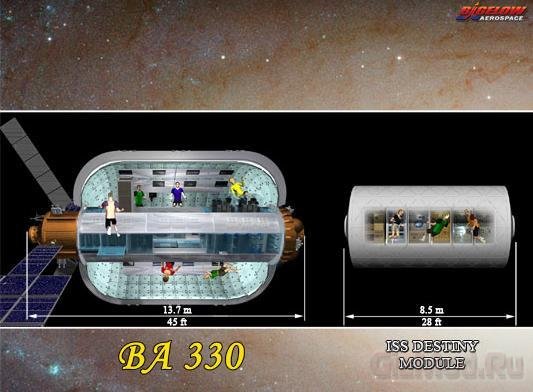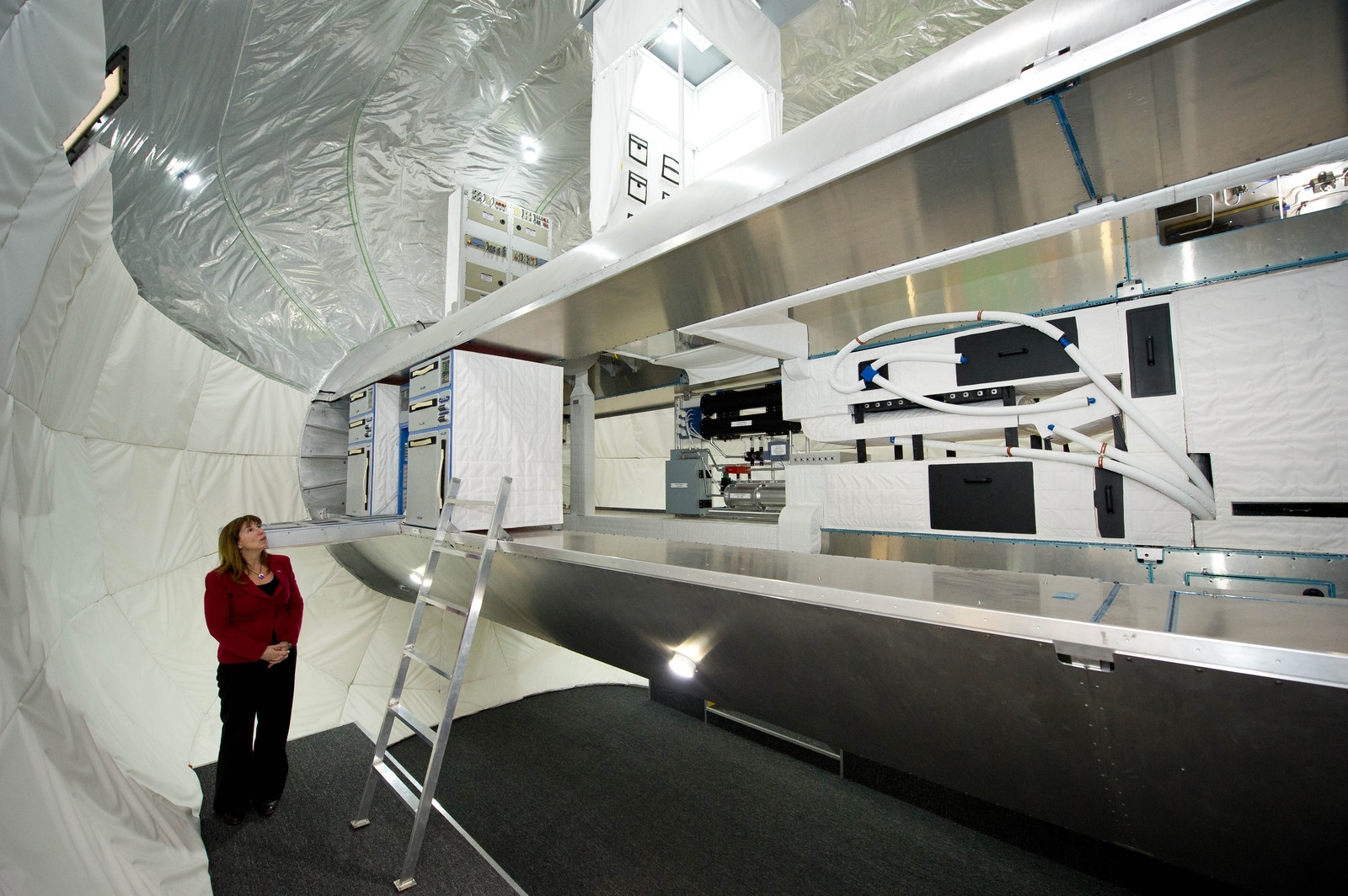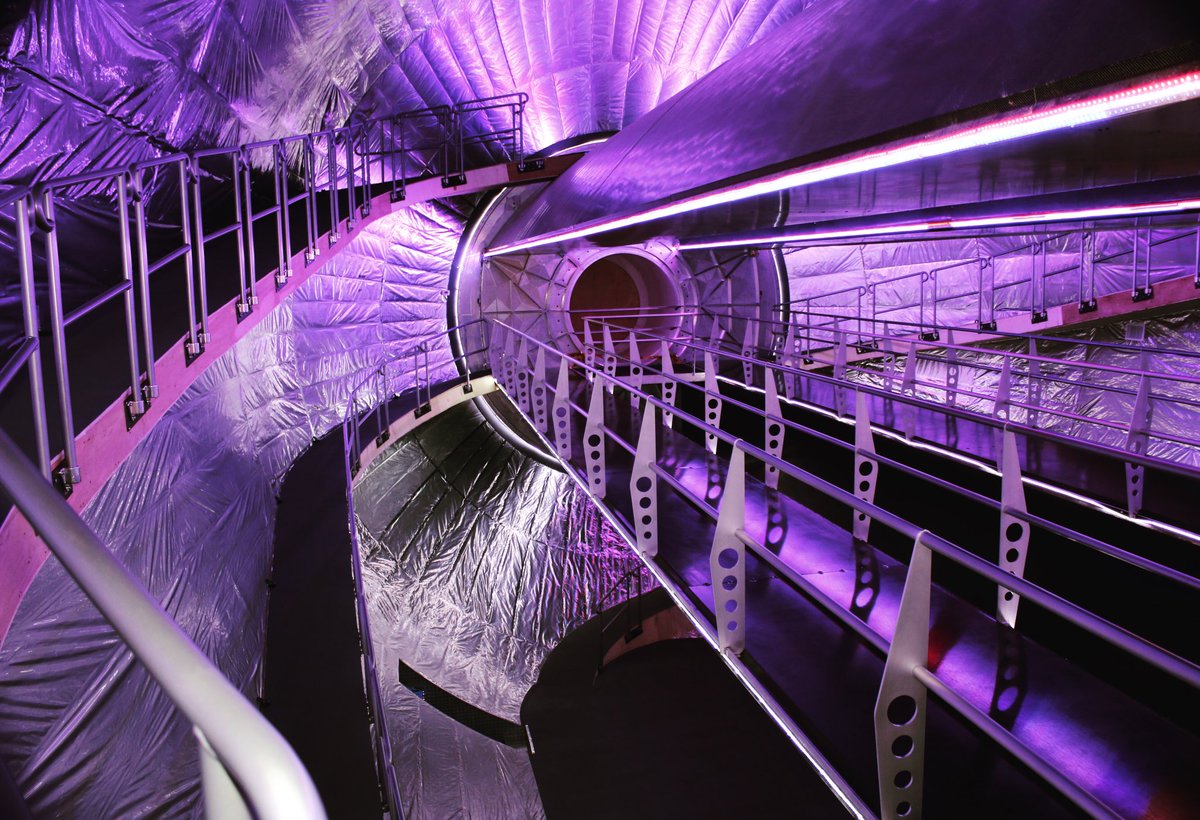Mid-2020's, rather than splashing it into the ocean when funding runs out.
The US is already planning a cislunar (near the Moon) exploration outpost using commercial logistics etc., as well as plans for a possible Moon return and Mars missions. There's also the possibility of NASA expanding their participation in SpaceX's Mars plans, which has already started with the Red Dragon missions.
If the Russians, as threatened, take several of their modules to create a "MIR 2" the US could replace them with Bigelow X-BASE modules, ISS units based on their B330. X-BASE is already under consideration for replacing the BEAM module after its test mission ends in 2 years.
I think the article is missing low hanging fruit WRT who does the takeover; Bigelow and Boeing have had a cooperative agreement for several years. Taking over ISS, upgrading it with X-BASE's and offering Starliner taxis seems a natural fit.
http://www.spaceflightinsider.com/mi...mlXF9wkGIzW.99
The US is already planning a cislunar (near the Moon) exploration outpost using commercial logistics etc., as well as plans for a possible Moon return and Mars missions. There's also the possibility of NASA expanding their participation in SpaceX's Mars plans, which has already started with the Red Dragon missions.
If the Russians, as threatened, take several of their modules to create a "MIR 2" the US could replace them with Bigelow X-BASE modules, ISS units based on their B330. X-BASE is already under consideration for replacing the BEAM module after its test mission ends in 2 years.
I think the article is missing low hanging fruit WRT who does the takeover; Bigelow and Boeing have had a cooperative agreement for several years. Taking over ISS, upgrading it with X-BASE's and offering Starliner taxis seems a natural fit.
http://www.spaceflightinsider.com/mi...mlXF9wkGIzW.99
NASA CONSIDERS HANDING OVER ISS TO A PRIVATE COMPANY
The International Space Station (ISS) could soon fall into private hands, according to a statement made by a NASA official on Thursday, Aug. 18. The agency is mulling the possibility of handing-off control of the orbital laboratory to a commercial company by the mid-2020s.
NASA revealed the possibility during a press conference focused on future manned missions to Mars.
NASAs trying to develop economic development in low-Earth orbit, said Bill Hill, NASA Deputy Associate Administrator for Exploration Systems Development. Ultimately, our desire is to hand the space station over to either a commercial entity or some other commercial capability so that research can continue in low-Earth orbit.
The agency did not reveal any further details about the possible ISS handover, not even specifying any potential buyers. Moreover, as the station is jointly managed by international partners, it is unclear how will they react to this proposition. The space station could be transferred to a commercial company as a whole or it could end in handing over only NASAs part this issue also needs to be determined.
NASAs announcement was coincidentally made not long after a statement made by the Roscosmos last week, about the possibility of cutting down its station crew size from three to two.
While the Russian space agency and NASA are committed to maintaining the current level of space station operations until 2024, the latest declarations from both sides seem to suggest that these two biggest ISS players are trying to end their commitment to the orbiting outpost and it may even come sooner than expected.
NASA spends a hefty $4 billion every year on space station operations and transportation about 20 percent of the agencys annual budget. The agency is continuously being criticized for allotting too many funds for Earth science and low-Earth orbit operations instead of focusing on deep space missions. Therefore, handing over the ISS activities to the private sector could help save NASA funds necessary for the planned crewed endeavors to asteroids and Mars.
While the possible handover is still in its infancy, there is already one entity that currently manages some activities aboard the ISS for NASA the Center for the Advancement of Science in Space (CASIS). They are a U.S. government-funded national laboratory and manage some operations regarding research aboard the space station.
It is also worth noting that in 1999 the MirCorp company was created to be a private operator for the Russian Mir space station. The company used the station as a commercial platform, albeit briefly, for a variety of space operations like a privately funded cargo resupply mission, a crewed expedition, and even spacewalks. Thus, the idea of a commercially owned space station isnt new in the history of space operations. Due to a variety of reasons, including the fact that Mir was aging (it was well past its designed lifetime of 5 years), the Russian space station was deorbited in March 2001.
The International Space Station (ISS) could soon fall into private hands, according to a statement made by a NASA official on Thursday, Aug. 18. The agency is mulling the possibility of handing-off control of the orbital laboratory to a commercial company by the mid-2020s.
NASA revealed the possibility during a press conference focused on future manned missions to Mars.
NASAs trying to develop economic development in low-Earth orbit, said Bill Hill, NASA Deputy Associate Administrator for Exploration Systems Development. Ultimately, our desire is to hand the space station over to either a commercial entity or some other commercial capability so that research can continue in low-Earth orbit.
The agency did not reveal any further details about the possible ISS handover, not even specifying any potential buyers. Moreover, as the station is jointly managed by international partners, it is unclear how will they react to this proposition. The space station could be transferred to a commercial company as a whole or it could end in handing over only NASAs part this issue also needs to be determined.
NASAs announcement was coincidentally made not long after a statement made by the Roscosmos last week, about the possibility of cutting down its station crew size from three to two.
While the Russian space agency and NASA are committed to maintaining the current level of space station operations until 2024, the latest declarations from both sides seem to suggest that these two biggest ISS players are trying to end their commitment to the orbiting outpost and it may even come sooner than expected.
NASA spends a hefty $4 billion every year on space station operations and transportation about 20 percent of the agencys annual budget. The agency is continuously being criticized for allotting too many funds for Earth science and low-Earth orbit operations instead of focusing on deep space missions. Therefore, handing over the ISS activities to the private sector could help save NASA funds necessary for the planned crewed endeavors to asteroids and Mars.
While the possible handover is still in its infancy, there is already one entity that currently manages some activities aboard the ISS for NASA the Center for the Advancement of Science in Space (CASIS). They are a U.S. government-funded national laboratory and manage some operations regarding research aboard the space station.
It is also worth noting that in 1999 the MirCorp company was created to be a private operator for the Russian Mir space station. The company used the station as a commercial platform, albeit briefly, for a variety of space operations like a privately funded cargo resupply mission, a crewed expedition, and even spacewalks. Thus, the idea of a commercially owned space station isnt new in the history of space operations. Due to a variety of reasons, including the fact that Mir was aging (it was well past its designed lifetime of 5 years), the Russian space station was deorbited in March 2001.






Comment